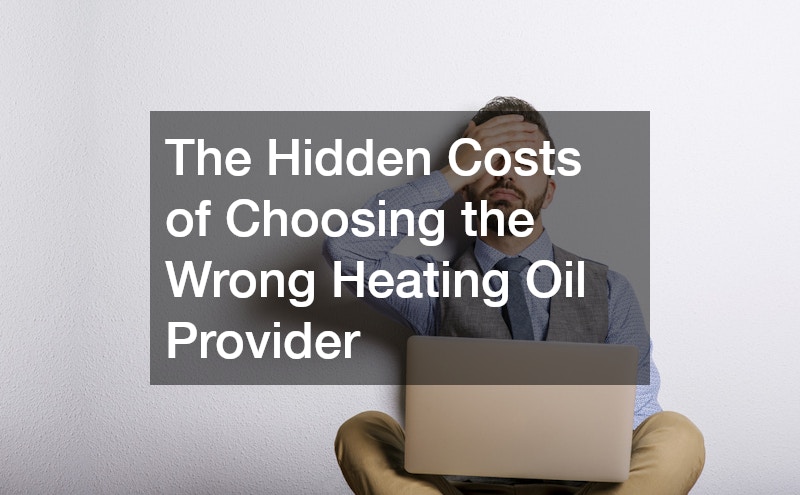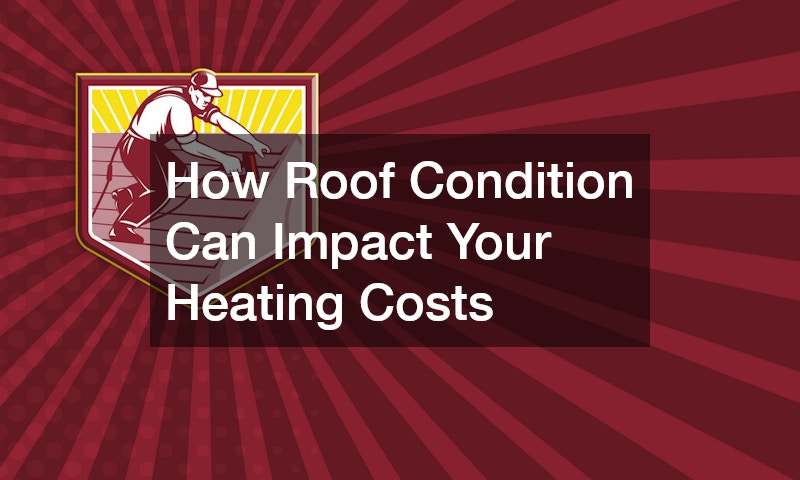
Is Your Old Heating System Costing You More? Here’s What to Consider
The comfort of a warm home during the chilly months relies heavily on the efficiency and performance of your heating system. However, an old heating system can become a financial burden, causing stress due to inefficiencies and the increasing cost of operation. As homeowners become more conscious of their heating expenses, understanding the nuances of how an aging system impacts costs becomes crucial.
With each passing year, HVAC companies witness a rise in requests for furnace repairs, emphasizing the toll that time takes on these systems. While some repairs can provide a temporary reprieve, the challenges of maintaining an old heating system often outweigh the short-term savings. This article delves into various aspects that might be draining your wallet and explores potential solutions to mitigate rising costs.
Understanding how and why your old heating system might be causing financial issues requires an examination of the many components that influence heating efficiency. From poorly maintained ducts to choices in heating oil and the condition of your windows and roof, these factors play a significant role in your overall heating expenditure. Let’s explore these in-depth to offer a comprehensive guide to managing and reducing heating costs.
Signs Your Heating System Might Be Draining Your Wallet

Your old heating system might be covertly increasing your utility bills through inefficiencies and hidden issues. One of the first signs is a steady increase in energy bills despite consistent energy usage, a red flag that the system is working harder than it should. Frequent breakdowns and the need for repeated furnace repairs also indicate that your system may be past its prime.
Unusual sounds emanating from the system, such as clanging or hissing, can also signify internal problems that need attention from reputable HVAC companies. These sounds often indicate wear and tear that requires immediate attention, lest they evolve into more costly repairs or replacements. An old heating system struggling to maintain a consistent temperature is another sign that efficiency is being compromised.
Inadequate heat distribution is another symptom of an inefficient system, resulting in cold spots or rooms that never reach the desired temperature. This issue can often be traced back to the incompatibility of the system with current household needs. Consequently, more energy is used as homeowners attempt to adjust settings to achieve the desired comfort, inadvertently increasing costs.
Costly Repairs: When Your Old Furnace Needs More Than Just TLC
Over time, even diligent maintenance can fall short if your old heating system has fundamentally deteriorated. An aging furnace is prone to significant issues such as cracked heat exchangers and failing motors, which require costly repairs. These repairs can be more frequent and expensive than homeowners anticipate, especially if vital furnace parts are no longer easily available.
Once a heating system reaches a certain age, HVAC companies might even advise considering a complete replacement rather than a piecemeal approach to repair. This suggestion often arises when repairs cost more yearly than a new system’s annual operating and maintenance expenses. Enlisting a seasoned heating contractor can offer insights into whether repair or replacement is the more economical choice.
A heating contractor can help evaluate whether ongoing maintenance costs are justified, especially when newer, more energy-efficient systems have significant financial incentives. The high initial cost of a new system may be offset by rebates, lower utility bills, and less frequent repairs, presenting a more viable long-term solution. In the end, proactively managing your old heating system’s health is essential to avoid unexpected, costly repairs.
How Duct Maintenance Can Affect Your Heating Expenses
The ductwork of your home plays a pivotal role in the efficiency of your old heating system. Leaks, blockages, or poor insulation within ducts can lead to substantial energy loss, thus increasing heating bills. Regular duct cleaning services are essential to ensure airflow efficiency and to prevent the system from being over-taxed.
When ducts are clogged with dust and debris, the heating system must work harder to distribute warm air throughout the home. This unnecessary strain can result in higher maintenance costs and reduce the system’s lifespan. Homeowners can save significantly by proactively scheduling inspections and cleanings with professional duct cleaning services.
Aside from cleaning, ensuring that ductwork is adequately sealed and insulated is paramount for minimizing heat loss. Investing in high-quality duct maintenance can prevent warm air from escaping, keeping homes comfortable without overworking the heating system. This proactive approach is a cost-effective method to enhance the overall efficiency of your HVAC system, especially for an older one.
Are Your Windows Contributing to Higher Heating Bills?

Windows can significantly impact the efficiency of your old heating system, especially if they are not properly sealed or insulated. Heat loss through windows is a common issue in older homes, which can cause your heating system to operate for longer periods than necessary. Considering window replacements can enhance insulation, reduce energy consumption, and subsequently lower heating costs.
Simple yet effective solutions, such as installing weatherstripping or insulating film, can help minimize heat loss without significant financial investment. These improvements can make a noticeable difference in energy consumption, easing the burden on your heating system. Consulting with professionals about potential upgrades or modifications can provide additional strategies tailored to your home’s specific needs.
Furthermore, choosing double or triple-glazed windows offers superior insulation benefits compared to single-pane options. Though this type of upgrade typically comes with a higher upfront cost, the long-term savings on your energy bills can be substantial. Ultimately, ensuring windows are properly maintained and insulated supports the overall efficiency of both new and old heating systems.
The Hidden Costs of Choosing the Wrong Heating Oil Provider

A heating oil provider plays a critical role in the operational costs of an old heating system reliant on oil-based heating. Choosing the wrong provider can inadvertently lead to higher heating expenses due to fluctuating oil prices or hidden fees. Establishing a relationship with a reputable heating oil provider can offer stable pricing, transparent billing, and reliable delivery services.
Providers often offer price protection plans, where you can lock in rates that insulate you from seasonal price spikes. Choosing an unsuitable provider can negate potential savings, especially if there are misunderstandings about contract terms. Evaluating reviews, available plans, and customer service quality can help ensure a cost-effective and hassle-free experience.
Moreover, some heating oil providers offer maintenance plans or discounts on repairs for loyal customers, which can be beneficial for an aging heating system. These additional services enhance value and provide peace of mind by servicing equipment to maintain peak performance. Ultimately, selecting the right provider helps stabilize costs and improve the efficiency of your heating system.
Evaluating the Efficiency of Your Home Heating Oils
Assessing the efficiency of home heating oils can reveal opportunities to reduce overall heating costs. The performance of your old heating system can be significantly affected by the type and quality of home heating oils used. High-quality oils can enhance combustion efficiency, resulting in more heat output per unit of fuel consumption.
Regularly servicing and cleaning your heating system ensures that combustion processes maintain optimal efficiency. Deposits and residues from lower-grade oils can lead to clogged burners and reduce heating efficiency, increasing both maintenance costs and fuel consumption. Enlisting the help of HVAC companies in selecting the most suitable home heating oils for your system can prevent potential issues and optimize performance.
Understanding that ongoing evaluation of fuel efficiency is an investment in lower heating bills is crucial. Many heating companies provide assessments as part of their service offerings, giving valuable insights into energy consumption patterns and recommending the best types of oils for efficiency. This proactive approach enables smarter decision-making, leading to cost savings and improved system longevity.
How Roof Condition Can Impact Your Heating Costs

The condition of your roof is an often-overlooked factor that can significantly impact the operating costs of an old heating system. A residential roofer can evaluate a roof for leaks, insulation deficiencies, or damage that may allow heat to escape. Poor roof maintenance can significantly decrease the efficiency of your heating system, leading to higher energy bills.
Regular roof maintenance addresses issues such as missing shingles or worn-out insulation before they contribute to heat loss. By ensuring the roof’s integrity, you reduce the load on your heating system, improving its efficiency. This proactive step can extend the life of your old heating system by decreasing its need to overcompensate for environmental factors.
In certain circumstances, homeowners may need to consider more extensive roof upgrades or replacements to achieve significant heating cost reductions. Working with a trusted residential roofer to enhance roof insulation can minimize energy loss, optimize heating system efficiency, and subsequently lower heating expenses. Ultimately, a well-maintained roof supports the sustainable operation of both new and old heating systems.
Is Your Old Heating System Making Your Home Less Energy Efficient?
An old heating system can diminish your home’s overall energy efficiency by consuming more power for the same level of warmth. As components age and wear down, systems become less capable of heating effectively without consuming excessive energy. This inefficiency can result in higher utility bills, placing financial strain on homeowners.
Retrofitting an old heating system with modern components, such as advanced thermostats or efficient motors, can bolster its performance. These improvements can fluctuate in cost but often provide rapid return on investment through energy bill savings. Energy audits performed by HVAC companies can pinpoint particular areas where efficiency enhancements will be most effective.
Additionally, comparing current energy usage statistics with those of newer systems can help homeowners make informed decisions about upgrades or replacements. Considering factors like energy consumption and lifecycle costs uncovers hidden savings potential. Strategic upgrades can transform your old heating system into a more efficient and cost-effective solution.
The Long-Term Financial Benefits of Upgrading Your Heating System
Upgrading an old heating system offers a slew of financial benefits, from immediate energy savings to increased property value. While an initial investment is required, the conversion to a newer, energy-efficient system can quickly pay off through reduced utility bills. Modern systems typically feature improved technology, leading to greater heating efficiency and reduced environmental impact.
The longevity and reliability of new heating systems also mean fewer unexpected breakdowns and reduced need for costly emergency repairs. Many HVAC companies offer financing options to ease the financial burden of upgrades, making the transition more manageable for homeowners. Additionally, various government incentives and rebates for energy-efficient systems can further offset the initial costs.
Moreover, upgrading enhances your home’s marketability by appealing to environmentally conscious buyers who prioritize energy efficiency. An upgraded heating system is often highlighted as a key selling point, potentially increasing resale value. Ultimately, investing in a new system not only reduces ongoing operating costs but also offers long-term financial and ecological advantages.
Understanding the Cost Implications of Ignoring Maintenance
Foregoing regular maintenance on an old heating system can lead to compounded costs and inefficiencies over time. Ignored maintenance needs can escalate into serious mechanical failures, necessitating expensive repairs or even premature system replacements. Routine check-ups by a reliable heating contractor keep the system functioning safely and efficiently, minimizing unexpected expenses.
Skipping scheduled tune-ups or repairs can also result in higher energy consumption, as the system struggles to compensate for underlying issues. Dust and grime buildup in neglected systems restricts airflow, reducing efficiency and forcing the system to work harder and consume more fuel. Consistent maintenance, including duct cleaning and filter replacements, supports seamless system operation.
Enlisting a heating company for regular service ensures that minor issues are addressed before they expand into major problems. This proactive approach results in steady cost management and prolongs system lifespan. Emphasizing maintenance as a priority helps prevent the financial pitfalls associated with neglected heating systems.
Can Professional Assessments Help You Save on Heating Costs?
Professional assessments from experienced HVAC companies offer valuable insights into the efficiency of an old heating system and potential cost-saving measures. These assessments typically evaluate various components, from energy consumption patterns to insulation inefficiencies. Identifying specific problem areas allows for targeted interventions that enhance system performance.
An assessment provides a clear picture of how your heating system performs under real-world conditions. Professionals can recommend appropriate fixes or optimizations, such as retrofitting older systems with energy-saving technology. Gathering this information empowers homeowners to make informed decisions regarding their heating investments.
Furthermore, HVAC professionals can recommend potential upgrades that qualify for government rebates, thereby easing the financial burden of initial investment. With accurate data and expert recommendations, improving overall heating efficiency and reducing costs becomes a more streamlined process. Partnering with a knowledgeable heating contractor ensures that all avenues for savings are explored.
Evaluating Your Heating System’s Performance: What to Look For
Monitoring the performance of your old heating system is key to managing and reducing heating costs. Homeowners should be attentive to fuel efficiency, system responsiveness, and maintenance needs as indicators of overall performance. Sudden spikes in fuel consumption or recurring breakdowns often signal that the system requires an assessment.
Evaluating the system’s ability to maintain consistent temperatures throughout the home provides insight into its effectiveness. Uneven heating could indicate potential issues with ductwork, requiring intervention from duct cleaning services. Consulting with professionals helps detect and address inconsistencies before they lead to increased expenses.
Homeowners can also benefit from routine inspections conducted by reputable HVAC companies to ensure that their system maintains its intended performance levels. These experts can evaluate aspects such as airflow, thermostat function, and component wear for potential deficiencies. An awareness of system performance allows homeowners to budget for upcoming maintenance or necessary upgrades.
Strategies to Reduce Heating Costs with Simple Home Improvements
Implementing basic home improvements can complement an old heating system by enhancing insulation and reducing overall energy consumption. Simple changes such as applying caulking to seal window and door gaps can prevent heat loss, thereby decreasing operational stress on the system. Low-cost solutions like draft stoppers and heavy drapes can significantly improve thermal retention.
Ceiling fans running clockwise can circulate warm air more efficiently, distributing heat evenly throughout the space. Adding insulation to walls, attics, and floors can further safeguard against energy loss, bolstering the system’s performance. These straightforward improvements limit wasted energy and provide immediate relief on heating bills.
By taking advantage of energy-efficient practices and materials, homeowners enhance their overall home environment while enjoying cost savings. Combined with regular maintenance and professional assessments, these strategies foster a comprehensive approach to maximizing the benefits of an old heating system. Making these adjustments ensures a comfortable home environment without breaking the bank.
Grasping the myriad of factors that affect the performance and costs associated with an old heating system is crucial for managing household budgets and ensuring comfort. By identifying potential inefficiencies and seeking the expertise of professionals in HVAC companies and duct cleaning services, homeowners can make informed decisions to improve efficiency. Proactive strategies, including maintenance, upgrades, and home improvements, contribute to a comprehensive approach to energy management.
Engaging with heating contractors, evaluating the condition of elements like windows and roofs, and choosing the right heating oil provider all play a role in optimizing a heating system’s performance. A clear understanding and tactical management of each aspect can lead to significant savings and enhanced home energy efficiency. Emphasizing smart investments and forward-thinking home management secures long-term financial and environmental benefits.
Ultimately, maintaining, assessing, and possibly upgrading an old heating system is an investment in comfort, financial stability, and energy conservation. By taking informed steps to understand and enhance this essential household component, homeowners can protect themselves from unexpected costs and contribute to a more sustainable future.